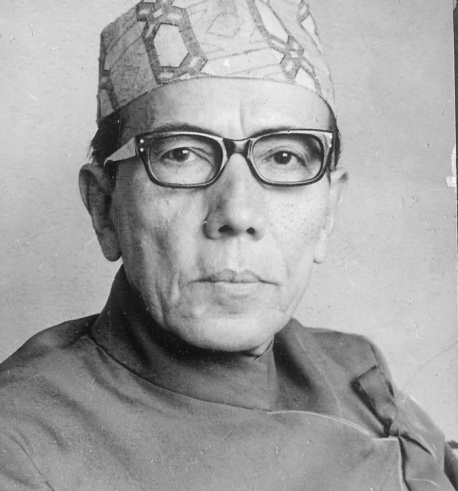
Bal Krishna Samser janga bahadur Rana was born in 1902 as the second son to General Samer Shumshere Jung Bahadur Rana and Kirti Rajya Laxmi in Gyaneshwor, Kathmandu, Nepal. He was born in Rana family (equivalent to Royal family) of that time so he was able to pursue the best education available in the country.
He completed his high school from Bhanu School (Durbar High School) in Rani Pokhari and went to Tri Chandra college as a science student. Balkrishna Samser Janga bahadur Rana by birth had right to become military officer went to Dehradoon (India) training and became a Lieutenant Colonel. Then prime minister Chandra Shumshere did not find Sama's interest in writing positively. Sama was not happy about the Rana rules and the regime.
He got married to Mandakini in 1921.
Balkrishna was distracted by cruelty of his grandfather to the servants and worker. His father was engaged in luxurious all the time. Sama had struggled finding time for him in peace. He selected learning art and literature to spend his time far from those violence and inhuman behaviors.
He started publishing his articles in good magazines like Sarada, Udhyog, Shahitya Shrot and others. He took out all the honorary names out of his long name and made it short as “Balkrihna Sama”. He did not want to associated himself with Rana autocracy in Nepal.
The drama "Bhater" published in Pragati in 1953 represents his feelings and concerned on human rights and freedom.
Bal Krishna Sama is known “Natya Siromani”. He was known to be "Shakespeare" of the era in Nepal. He was much more inspired by Shakespeare's works. His dramas such as "Prem Pinda", "Buhartan", "Tapobhumi", "Atyadhunikta", and "Bhater" present the social context of the Rana era.
"Mukunda Indira" and "Mutuko Byatha" show the emotional and romantic side of Sama's personality. Mukunda Indira is story of all Nepali people still in 21st century. "Amit Basana", "Boksi", "Talamathi", and "Andhabeg" are based on the human psychology. And his dramas on historical personalities are "Amar Singh", "Bhimsen Ko Antya", and "Bhakta Bhanubhakta". "Birami Ra Kuruwa" deals with philosophy while "Prahlad" and "Dhruba" are based on religious figures.
Sama's contribution to Nepali literature and drama is things to be proud of.
